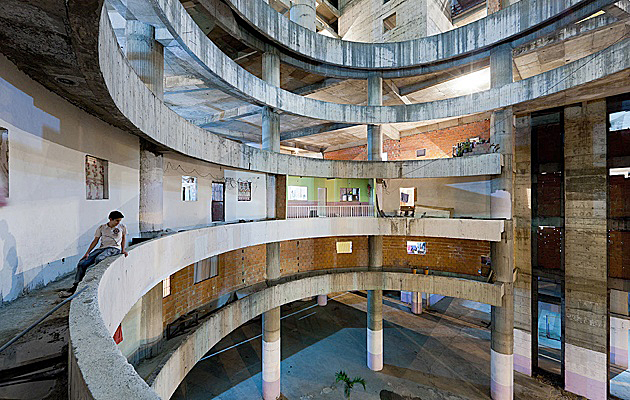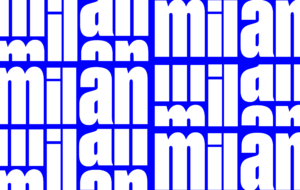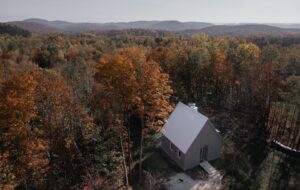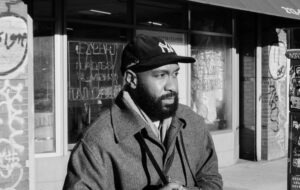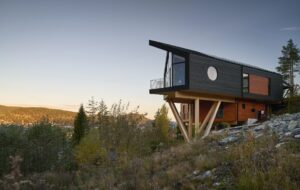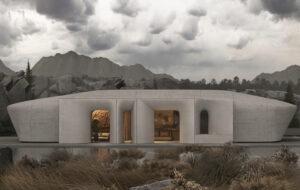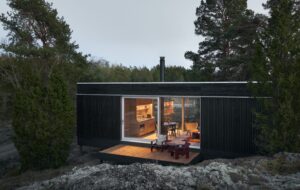|
|
||
|
Urban-Think Tank talks to Icon about the forced removal of the 3,000 residents of Torre David in Caracas Last week, the Venezuelan government began evicting the residents of Torre David – a 45-storey vertical slum in central Caracas that is home to more 3,000 people. We asked Daniel Schwartz, who recently made a film about the tower for Urban-Think-Tank, about the move. Why do you think the government has now chosen to pursue this action? We don’t know. About two months ago, the government sent officials from the housing ministry to visit Torre David and announced a desire to work with the residents to improve their living conditions. It was the most direct statement of support for the community in its eight-year occupation. At the same time, it was vague and not backed by any firm plan. Two weeks ago, we got word from some surprised residents that the government had urgently begun negotiations regarding their eviction and resettlement. Many of the news reports in the period since have attributed the government’s actions to a deal with Chinese investors. We’ve seen no credible evidence to back this up, however, and nothing has been announced. Even now, there is no specific itinerary or development scheme on the table. The government official who is ostensibly directing Torre David’s future, Ernesto Villegas, has indicated that the state wishes to redevelop the site for humanitarian rather than commercial reasons. We are curious about how it defines those humanitarian motivations and how the current and future actions of the government will conform to them. What will the ramifications be of these evictions for the residents of Torre David? We are hesitant to call Torre David a “slum”, though it is perceived and treated as such by many, both in Caracas and internationally. For this reason, we have to stress that it can be complicated to talk about the ethics and ramifications of slum eviction, particularly when the slum in question has inspired so much contentious debate about the “right to the city”. Do the residents deserve to stay, be resettled – consensually or coercively – or should they simply be kicked out? Because of the mixed messages we’ve been hearing from the government, it’s hard to say what their policy directives are and how they will eventually affect the residents. What we’ve read so far is that several hundred families have already been moved to a social housing project in a small city 53km south of Caracas. On one hand, the government has said that this rehousing scheme was agreed upon by all residents, but there are news reports suggesting the residents had to choose between this offer or the street. We are unaware of the exact nature of the government’s agreement with the Torre’s collective leadership or individual inhabitants. We are sceptical though of any eviction plan that relocates so many people so far from where they have been living. Most of these residents have been leading productive lives in Caracas, whether as labourers, business owners, students, or even civil servants. It seems strange that the first and only option for rehousing is one that involves such an extreme geographic dislocation. What, if anything, does this move tell us about the changing socio-political dynamics in Venezuela and Caracas? Venezuela has in some ways been in a slow-motion civil conflict for the past two decades. The political climate is incredibly polarised and society has become increasingly stratified along social and economic lines. In recent months, with a disorganised protest movement, much of this polarisation erupted onto the streets. It’s hard to say, however, what the broad results of this conflict were, other than increased partisanship and a consolidation of power by the threatened administration of President Maduro. The streets have become quieter now, and the Maduro government is still echoing much of the revolutionary rhetoric of Chavismo. Sometimes these speeches do not always match with action, making it hard to evaluate what dynamics are at work, either in perception or reality. What alternative approach should the government be taking? Villegas, who is essentially serving as the new housing and development manager for the city of Caracas, has not given a clear sense of what the government’s plans are. In a recent interview, he indicated that he was aware of some of the proposals that we developed with residents to renovate and retrofit the tower, effectively initiating an upgrading process. But in the same conversation, he said he was in favour of demolishing the structure, as he suspects it may be unsalvageable for safe redevelopment. We hope that the government looks for an innovative strategy along social, ecological and economic lines. In fact, we have contacted Villegas offering our past work and thoughts on the matter. If the government is truly seeking ideas and looking for a democratic redevelopment process, we hope it will engage in an open dialogue. What, if anything, does this teach us about the role of informal housing developments such as this in Latin America? There have been many innovative ideas and projects in Latin America over the past 20 years. But the reality of an urban housing shortage and an unequal allocation of resources has not been fully addressed by the sectors of society that could play a role in developing solutions. And, to be clear, informality is not a problem that needs to be solved, but rather a mode of development that needs support from “formal” actors and institutions. We hope that governments, private industry, professionals and academia across the region can begin working collaboratively to learn from past mistakes in urban housing and experiment productively with fresh strategies. |
Interview Debika Ray |
|
|
||

